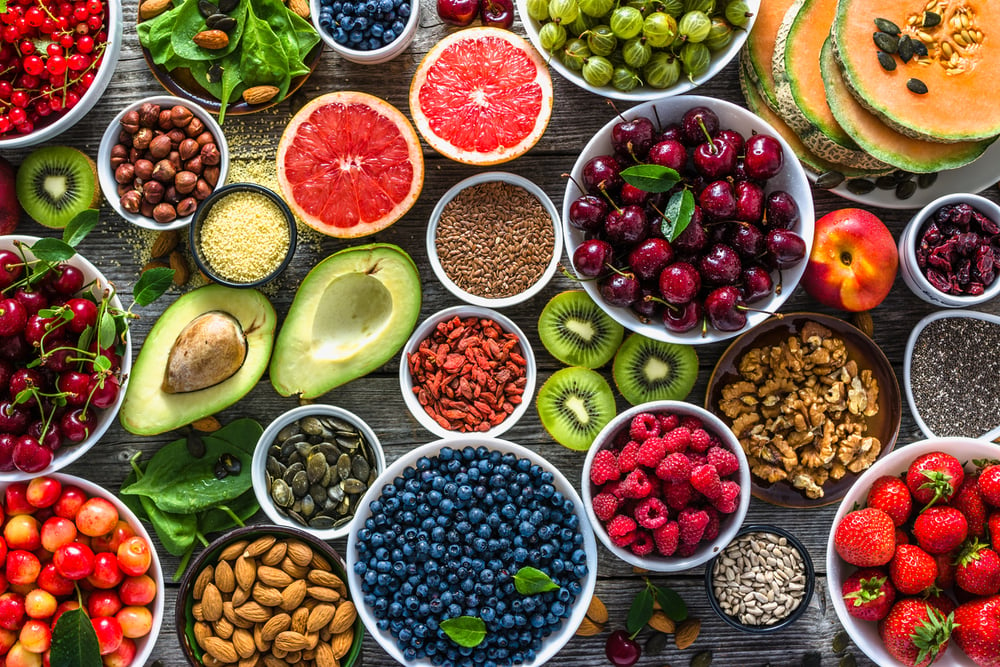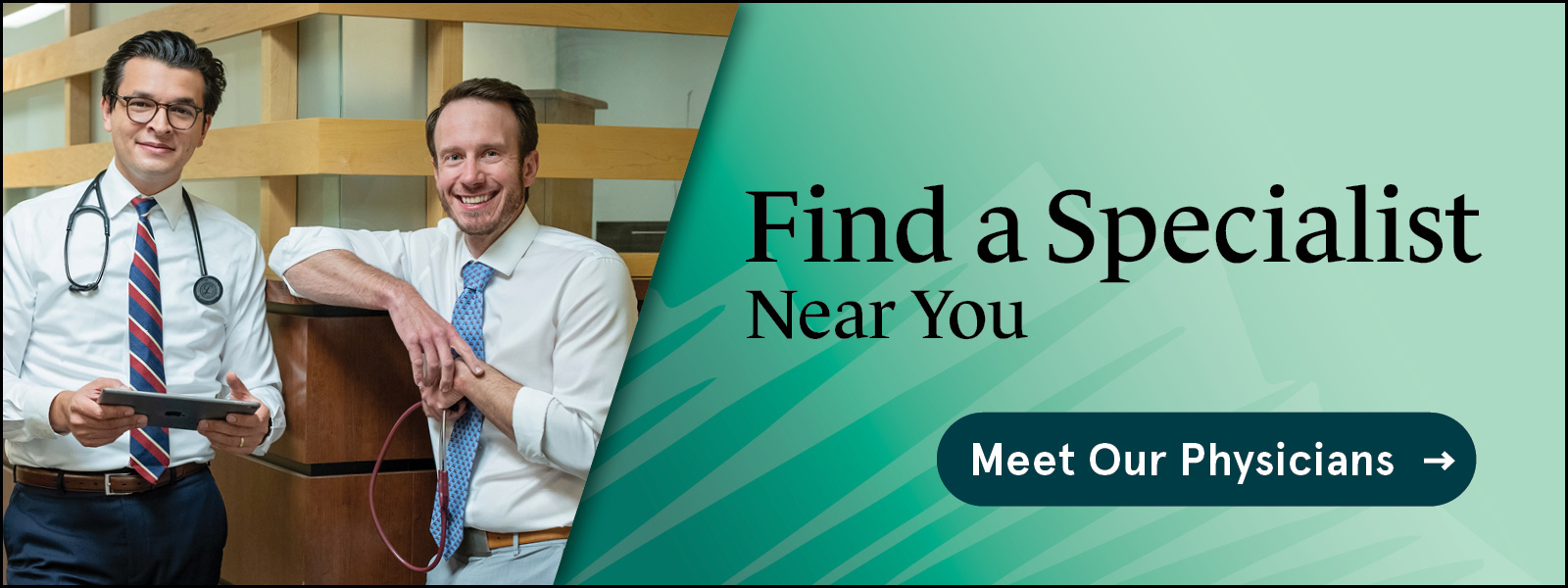Eating Well During Radiation Therapy
8 min read

Many cancer patients need radiation therapy as part of their treatment plan. While it’s very effective at destroying cancer cells, it can also take quite a toll on your body. Thankfully there are things you can do to stay as strong and healthy as possible while going through all of your cancer treatments, but especially radiation therapy.
One of the best things you can do for yourself is maintain a healthy diet. What you feed your body can greatly influence how well your body functions and heals during treatment and after treatment ends. Let’s look at what you need to know about nutrition during radiation therapy.
Radiation Therapy and Its Effect On Your Body
As with other cancer treatments, radiation therapy can cause side effects. Some side effects, such as fatigue, are common among most patients. Others, however, are more specific to the area of the body that’s receiving treatment. For example, if you are receiving treatment for a type of head and neck cancer, radiation therapy may cause you to struggle with eating since it affects the throat and/or mouth region. Or, if you are receiving radiation therapy to the pelvic area, you may experience stomach issues, including nausea, gas, or diarrhea. Because of this, the nutrition needs can vary somewhat from patient to patient.
When these side effects occur, it can cause many patients to lose their appetite and miss out on getting important nutrients. Ultimately, this can leave you feeling even more weak and tired. This is why it’s crucial to eat a well-balanced diet even when you don’t really feel like it while undergoing radiation therapy. The right foods, such as lean proteins and healthy fats, can make a big difference in nourishing your body and giving you more energy.
Nutrition Tips for Radiation Therapy Patients
It might seem like a challenge to adjust your diet, but it’ll be worth it since making certain changes can really help as you recover from radiation therapy. Watch this video for common recommendations for eating well during radiation therapy.
Increase Proteins and Healthy Fats to Feel Strong
Eating a diet rich with protein and healthy fats can be very beneficial while undergoing radiation. Protein helps maintain muscle mass and supports tissue healing, while healthy fats help lower inflammation and support cell function. All of this is ideal for someone who is going through radiation therapy!
When it comes to increasing the amount of protein you consume, try reaching for foods like eggs, nut butter, dairy products, meat, poultry, and fish. In regards to fats, it’s important to understand that not all fats are equal. Be sure to choose foods that contain unsaturated fats as they are the healthiest out of all the other kinds of fats. This includes options such as olive oil, avocados, nuts, seeds, and flax.
Check out our recipe blog with recipes that are easy to make and nutritious for cancer patients.
Add More Carbohydrates to Have Energy
During radiation therapy, you’ll likely feel low on energy. Complex carbohydrates (carbs) can give you that energy boost your body needs. As a general rule, it’s best to avoid processed carbs that don’t offer much nutritional value. Instead, try to get your carbohydrates from healthy sources like fruits, vegetables, and whole grains.
Try Not to Lose Weight
Your doctor may recommend that you increase your caloric intake while undergoing radiation therapy for a couple of different reasons.
- A higher-calorie diet provides the body with the energy it needs to support tissue health and regrowth.
- More calories will help you better maintain an ideal weight during treatment.
You might not feel like eating, but it’s important. Try to find things you like that aren’t processed foods, empty calories from sugar, or fast food, if possible.
Stay Hydrated
With the dry Colorado air, staying hydrated is a constant challenge for everyone. But when you are going through radiation therapy, there are times you might find it hard to swallow, or you just don’t feel like eating and drinking.
Staying hydrated boosts energy, organ function, healing, and combats fatigue. Other than plain water, a few great ways to stay hydrated are juices, broths, sports drinks, and popsicles.
Vitamin and Mineral Supplements Can Help With Healing
Certain vitamins and minerals can help your body with healing and support the immune system. You may be able to get adequate vitamins and minerals through diet alone, but your doctor may recommend some supplements to help increase levels. Before starting any new vitamins or supplements, be sure to talk with your doctor.
How to Stay Nourished When You Don’t Feel Like Eating
There are times you might just not feel like eating. To help, here are some tips for getting the nourishment your body needs even when you don’t feel like it.
- Eat small, frequent meals. If your appetite is minimal or if you feel like a big meal just doesn’t sound good to you, try eating small, frequent meals instead. Keeping snacks on hand, such as in your car or purse, is a good way to ensure you have something small to reach for when you do feel hungry.
- Use protein powder in smoothies and drinks. Protein powder is a great way to get extra calories and nutrients in. It can be easier to drink something when your appetite is minimal rather than trying to eat a big meal.
- Incorporate softer foods. When the mouth or throat is the area of treatment, radiation can cause mouth sores and other side effects that make eating difficult. Foods like smoothies and broths are softer options that allow you to get the nutrients you need in times when chewing is difficult.
- Share a meal with friends. Using mealtime as a time to meet with friends can motivate you to eat and make the whole experience more fun. Whether you meet up at your home, a restaurant, or the park, the distraction of socializing may help to pull your attention away from the food, allowing you to relax into meal time a little more.
Foods to Avoid During Radiation Therapy
It’s not uncommon for treatment to cause digestive upset, such as nausea and diarrhea, in patients undergoing radiation therapy. To minimize this as much as possible, it’s recommended that you avoid foods that can interfere with digestion while undergoing radiation therapy. This especially includes spicy foods as they can further exacerbate this side effect. If there are any foods that you know will typically upset your stomach, it is best to steer clear of those (or at least check with your doctor first).
While your doctor or nutrition counselor can give you specific recommendations, there are some general foods that should be avoided during radiation including:
- Excess salt
- Refined sugars
- Excess alcohol
- Saturated fats and trans fats
If there are any foods that you want to eat, but you’re unsure about, don’t hesitate to ask your doctor for guidance.
More Helpful Tips for Site-Specific Radiation Treatment
When radiation is administered to certain body parts, some specific challenges may arise. You may find the following suggestions helpful if you are receiving radiotherapy to the head and neck region or to the pelvic area.
Eating Tips for Head and Neck Cancer Radiation
Radiation given to treat head and neck cancers may make it hard to eat. Side effects can include dry mouth, sores, nausea, loss of taste or a metallic taste, or difficulty chewing and swallowing. To help these uncomfortable side effects, consider:
- Eating soft, bland foods that won’t irritate the mouth.
- Using gravies or sauces to moisten foods.
- Avoiding spicy foods or acidic fruit, such as oranges or grapefruit, that may inflame sores.
- Using plasticware instead of metal knives, forks, or cans.
- Increasing saliva by sucking on popsicles or lozenges.
- Rinsing your mouth every four to six hours for comfort and palette cleansing between meals. (An alcohol-free mouthwash or a water and baking soda solution are good choices. Your doctor or dentist can help determine what might work best for you.)
If you experience excessive mucus in your throat, gargle with warm salt water and sip on liquids throughout the day. You might also find that warm teas can help with clearing the throat and easing nausea. For extra calories, consider drinking sports or therapeutic nutrition drinks.
Your provider may recommend a temporary feeding tube if choking or the inability to eat, drink, or swallow becomes a concern.
Pelvic Area Radiation Can Cause Side Effects that Impact Your Eating Habits
Sometimes, radiation therapy administered to the pelvic region can cause changes in your bowels or bladder inflammation. Possible side effects include bloating; difficulty urinating; diarrhea or constipation; and rectal irritation or itchiness (proctitis). To minimize complications after colorectal, prostate, or gynecologic cancer treatment, please reach out to your care team for recommendations and best practices.
To help reduce bloating and gas:
- Eat slowly and chew food well
- Avoid chewing gum and carbonated drinks
- Limit gas-producing foods, such as Brussels sprouts, cabbage, beans, and some artificial sweeteners, like sorbitol, aspartame, and stevia
To manage bladder issues:
- Drink plenty of fluids
- Avoid drinking caffeine and alcohol
- Don’t eat spicy foods
- Avoid using tobacco products
If suffering from frequent, watery bowel movements:
- Replenish fluids throughout the day
- Avoid caffeine and alcohol
- Eat more soluble fiber, such as sweet potatoes, carrots, oats, apples without skins, and bananas
- Speak with your physician if diarrhea does not improve
If suffering from constipation:
- Drink eight to 10 cups of liquid a day
- Establish regularity by eating and trying to have a bowel movement on a schedule
- Select high-fiber foods, such as bran cereals, popcorn, and fruits and vegetables with skins on
- Lightly exercise to help improve regularity
- Contact your doctor if you are unable to have a bowel movement for three or more days; use laxatives only as recommended by a doctor
Minimize inflammation of the rectum (proctitis):
- Avoid caffeine
- Avoid spicy, acidic, and fatty foods during bouts of diarrhea
- Try switching to alternative forms of milk if lactose intolerance may be a factor
Nutrition Counseling for Radiation Therapy Patients at RMCC
At Rocky Mountain Cancer Centers, we understand that eating a balanced, nutritious diet is important for your body to fight cancer and stay strong during treatment and after treatment ends. This is why RMCC has many support services in place to help you get the most benefit from your radiation treatment. Talk with your care team about the available resources that include a nutrition blog, nutritional workshops, and more.
If radiation therapy is part of your recommended treatment plan, request a consultation with one of our cancer specialists in Colorado including the Denver area, Colorado Springs, Boulder, and throughout the Front Range.
